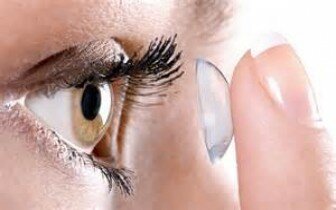
All of the smartphones bursting into flames these days has got us thinking a lot about batteries here at the NewsRoom of Algarve24. Specifically, we were wondering if the need to periodically discharge cell phone batteries to keep them conditioned is really necessary. So, as part of our regular One Big Question series, we put that very query to Daniel Abraham, a lithium-ion battery specialist at the Argonne National Laboratory outside of Chicago, Illinois. Here's what he had to say on the subject:
Present-day cell phones (and laptops) contain lithium-ion batteries, which do not need to be discharged periodically to keep them "conditioned." The "discharge periodically" recommendation is a holdover from older kinds of batteries, such as nickel-cadmium and nickel-metal hydride rechargeable batteries. These batteries are believed to display a "memory effect" that causes them to hold less charge if they're not discharged periodically. That's not the case for lithium-ion batteries. To understand this better it helps to know how rechargeable lithium-ion batteries work.
A rechargeable battery cell contains four basic components: a positive cathode, a negative anode, an electrolyte that allows lithium ions to flow between them, and a separator that physically separates the electrodes to prevent short circuits. When you charge the battery, the current from the electrical outlet forces lithium ions to move from the cathode to the anode. This converts electrical energy from the outlet into stored chemical energy. When you unplug the battery and begin to use it, the lithium ions flow back to the cathode; the stored chemical energy is converted into a stream of electrons to power the device. In commercial lithium-ion cells graphite is typically the active component in the anode. The lithium ions arrange themselves between the graphene planes making them expand and contract. The active component in the cathode is typically lithium-bearing oxide or phosphate particles. The lithium-ions are extracted from these particles when the cell is being charged or inserted into these particles when the cell is being discharged. This lithium insertion and extraction process, termed intercalation, typically does not alter the crystal structure of the host cathode or anode particles. In an ideal scenario the lithium insertion and extraction process is 100 percent reversible; in reality some lithium-ions are lost in undesired reactions and cell battery performance degrades gradually. The memory effect in NiCd cell is attributed to the formation and growth of cadmium hydroxide crystals when the cell is held in the fully-charged state for long periods. Periodic deep discharges (or cell conditioning) restore the crystals to their original size and cell performance is often restored. Commercially available lithium-ion cells are based on intercalation chemistries and do not display such crystal formation and growth. However, scientists in research laboratories worldwide are working on alternative chemistries to increase the energy and power density of battery cells. Some of these cells are based on a "conversion" process instead of the intercalation process. New crystal structures are formed during the conversion reaction. We do not know whether these future cells will need to be conditioned periodically to maintain performance.

Bike with a front wheel that has an electric motorwheel eases off on dollars and pounds...

bitwarden is the easiest and safest way to store and sync your passwords across all of your devices. ...

One Big Question: Do you really have to drain your battery periodically to keep it conditioned?...

Ecosol, momento surpresa padre Himalaia e Almoço Solar, Universidade do Algarve 12H-15H...

Sony has filed a patent for contact lens that records what you see, with the blink of your eye...
FREE your phone Now!
Best service at lowest price for
unlocking your phone!
With our discount code: "ounl1"
 Solar eclipse of Monday 21 August 2017
Solar eclipse of Monday 21 August 2017 Hip Hop at Blanco Beach
Hip Hop at Blanco Beach The new Ombria Resort will be 8 KM north of Loulé
The new Ombria Resort will be 8 KM north of Loulé American Cars Algarve Show in Faro
American Cars Algarve Show in Faro A protein that makes your heart think you exercise
A protein that makes your heart think you exercise